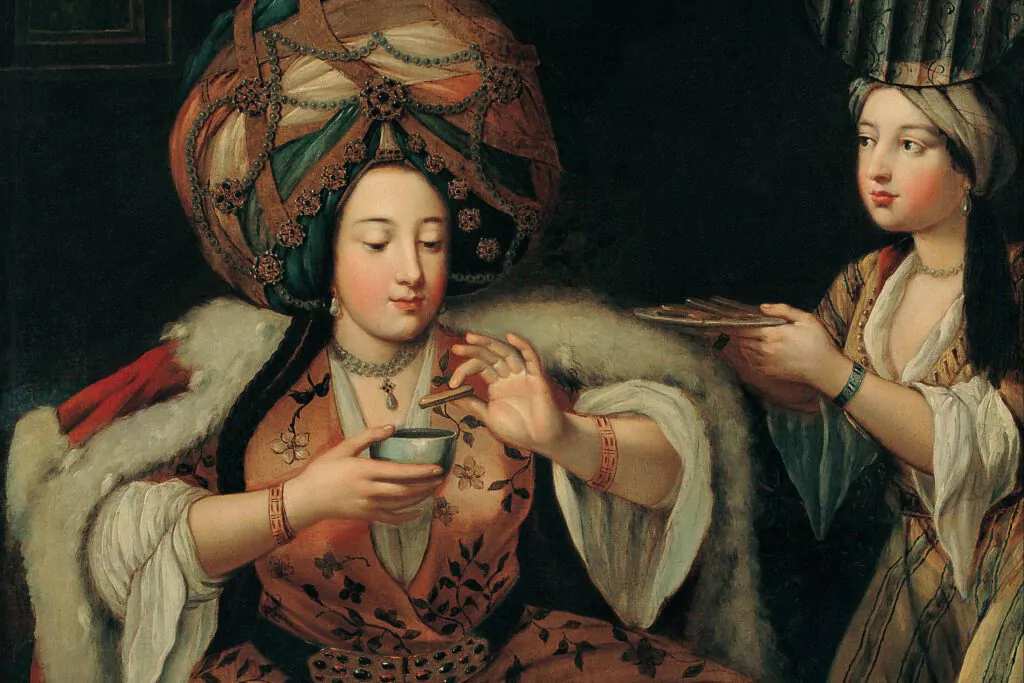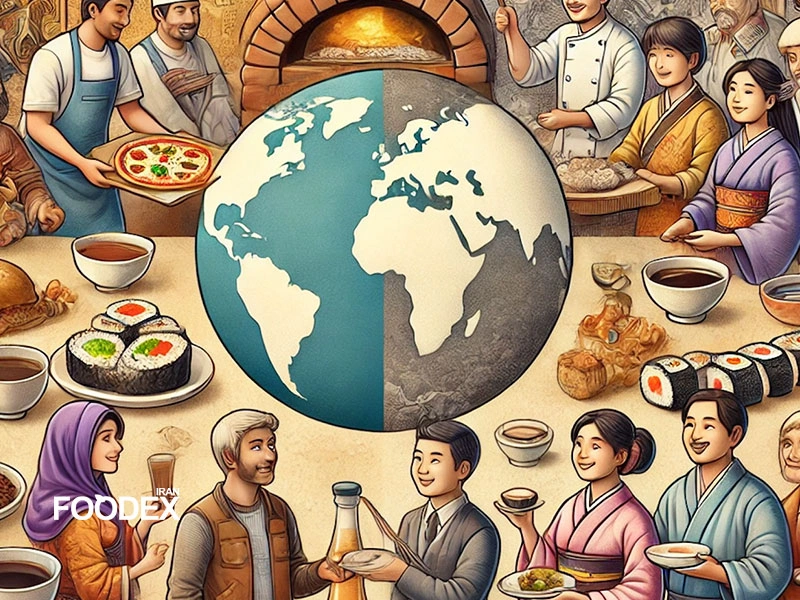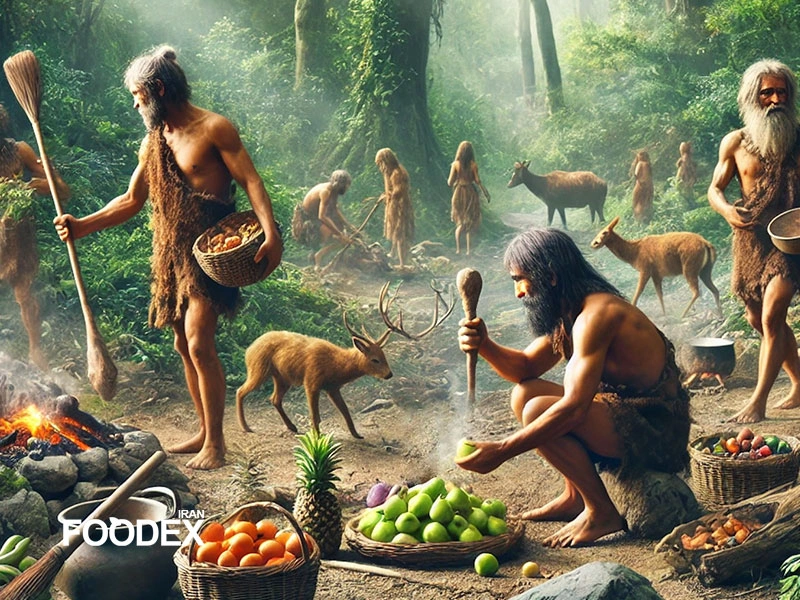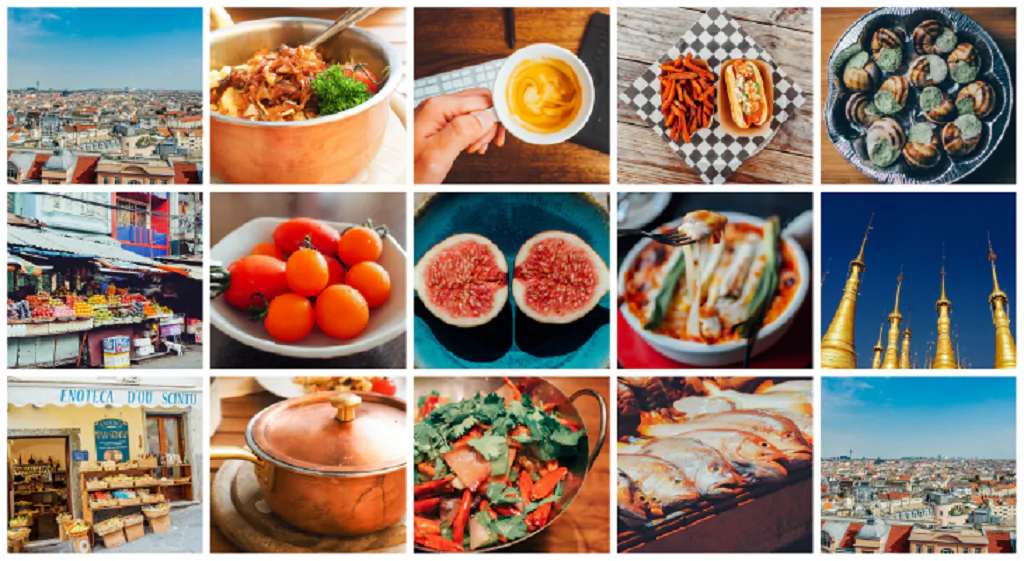Today, we’re diving into the origins of coffee to discover where this aromatic beverage was first found and who was the visionary that introduced this remarkable drink into human life. As you may know, the complete history of coffee shows that it is cultivated worldwide and is a heritage from ancient times. Historical evidence suggests that coffee was first cultivated in the highlands of Ethiopia and later exported to the rest of the world. But the tale of coffee’s discovery begins between the Arabian Peninsula and Yemen, with a person who noticed his goats became more energetic after eating berries from a certain plant.
This story spread from mouth to mouth, and people realized that brewing and drinking the water from these brown beans gave them more energy for their activities. The tale of these beans reached all corners of the world and arrived at the Arabian Peninsula—a place many believe is the birthplace of coffee. But what’s the real story behind this beloved beverage’s origin, and in which country was coffee first discovered?
If you’re as passionate about coffee as we are, let’s spend a few minutes exploring the birthplace of this popular drink.
The Birth Story of Coffee in Arabia
Coffee cultivation and trade began extensively from Arabia. While historical evidence doesn’t definitively pinpoint which country first discovered coffee, we are certain that large-scale cultivation started in Arabia and Yemen, turning it into a lucrative trade. In the 16th century, simultaneously with the Safavid era in Iran and the Ottoman Empire in Turkey, coffee reached Iran, Turkey, Egypt, and Syria. The history of coffee in Iran indicates that this delightful drink was initially embraced by the elite and royal courts.

From the 16th century onward, coffee consumption became widespread among the general public, significantly influencing the establishment of various social centers known as coffee houses. People in the Middle East and Ottoman territories gathered in coffee houses to discuss current affairs. The impact of these coffee houses on culture and public awareness was so substantial that Sultan Murad of the Ottoman Empire banned tobacco and coffee drinking and later prohibited gatherings in coffee houses. Even during Sultan Suleiman the Magnificent’s reign, coffee drinking was declared illegal for a period. However, these bans had little effect on the populace. The general public enjoyed drinking coffee, and merchants profited handsomely. Throughout the 16th and 17th centuries, coffee from Arabia spread worldwide and secured a share of the European market.
The history of Turkish coffee also began during this period, becoming a cultural symbol of Turkey. Turkish coffee is known for its strong flavor and unique preparation method, where finely ground coffee is boiled in a special pot called a cezve.

The Introduction of Coffee to Europe
Parallel to the growth of coffee house culture in the Middle East, this aromatic beverage reached Europe in the 17th century and gradually became popular among the public, aristocrats, and royal families. The history of coffee in the world shows that coffee was initially used in Europe as a medicine to treat various ailments. However, the cultural impact of coffee houses from the Middle East and the Ottoman Empire soon reached Europe, and people across England, France, Germany, and the Netherlands began frequenting establishments to socialize and drink coffee.
The growing popularity of coffee led to it becoming a staple morning beverage among the populace, and many turned to coffee as an alternative to alcohol, making it a daily drink for Europeans. Perhaps this widespread acceptance is why some people, instead of Yemen and Arabia, consider Europe the birthplace of coffee.
By the mid-17th century, over 300 coffee houses were operating in London, frequented by artists, painters, and notable figures who spent their time there. This attention and popularity led to the emergence of a new industry, and by the early 18th century, we witnessed the establishment of cafes dedicated to serving coffee. Thus, a beloved beverage that originated from Arabian lands became a significant part of the new world’s culture.
During this era, the history of French coffee also unfolded, with Parisian cafes becoming hubs for intellectuals and artists. The French developed their own coffee culture, which emphasized leisurely enjoyment and conversation.

The Role of Coffee in Modern Times
Coffee achieved remarkable popularity in the modern world, becoming a favorite drink for many Europeans. By 1773, heavy taxes were imposed on it. Eventually, this law faced strong opposition from King George III, and around the same time, this beverage made its way to the American continent.
The increasing global demand for coffee was expanding, and various countries sought to cultivate coffee domestically to eliminate reliance on imports from Arabian lands. Ultimately, it was the Dutch who, in the 17th century, began efforts to cultivate coffee in their colonial territories, successfully harvesting it for the first time in what is now Indonesia.

In the 18th century, coffee reached the Caribbean and Central America for the first time, becoming the second most important trade commodity in the world. Perhaps this is why some people, when asked where coffee was first discovered, consider Brazil the birthplace of this popular drink. However, historical records tell a different story.
With the expansion of coffee cultivation in various regions, the history of different types of coffee emerged, and various methods of preparing this beverage were developed. From espresso and cappuccino to latte and mocha, each type offers a unique taste experience.

The Coffee Capital of the World
In the 18th century, Brazil began cultivating coffee in competition with other American countries, reaping significant profits and establishing a billion-dollar industry. Missionaries, explorers, and traders seeking new lands for coffee cultivation recognized Brazil’s potential for growing coffee beans. Consequently, vast coffee plantations stretched as far as the eye could see in Brazil’s tropical landscapes.
By the late 18th century, coffee was recognized as the most lucrative industry globally, becoming the most important internationally traded product after oil. During this time, Arabian lands gradually declined in prominence, and Brazil emerged as the leading coffee producer worldwide. The Dutch and the French greatly benefited from this mass production, so much so that in our world today, although Arabian coffee is considered an authentic beverage, most people mistakenly believe Brazil is the birthplace of coffee.
Today, Brazil is known as the coffee capital of the world, and many wonder, which country has the best coffee? While Brazil is a top producer, countries like Colombia and Ethiopia also produce high-quality coffee beans with unique flavors.
The History of Coffee Makers
As coffee consumption grew, the need for various tools to prepare this beverage became evident. The history of coffee makers dates back to the invention of the first brewing devices in Europe. From simple pots for boiling coffee to modern espresso machines, these devices have played a significant role in shaping coffee culture.
Who Discovered Coffee?
Regarding who discovered coffee, several legends exist. The most famous story involves an Ethiopian goat herder named Kaldi, who noticed his goats became more energetic after eating red berries from a certain tree. He shared this discovery with local monks, leading to the initial use of coffee beans to make a stimulating drink.
Final Thoughts
In this article, we’ve explored one of the world’s most beloved beverages—coffee—to see where it was first discovered and how it achieved such global popularity. The history of coffee in Iran shows that coffee had more enthusiasts in Europe than in Iran and the Ottoman Empire. While both coffee and tea entered these two regions in the 16th century, people showed a stronger preference for tea.
Europe’s continued enthusiasm for coffee led them to consider cultivating the beans in their own lands, ultimately choosing Brazil. Before the Industrial Revolution and following oil, coffee became one of the world’s most profitable industries.
In our modern world, coffee enjoys extraordinary popularity. Various cafes operate throughout cities, offering different types of coffee—plain, with milk, or with chocolate—for daily consumption. This popular beverage, once discovered by an unknown individual and surrounded by legends, has become the world’s most famous drink, one that many of us can’t start our day without.
Frequently Asked Questions
When did coffee consumption start in Iran?
Coffee entered Iran in the 16th century, simultaneously with tea, but it did not gain widespread acceptance among the general public, who preferred tea. By the 18th century, tea cultivation officially began in Iran. During the Qajar era, coffee gradually became popular among the people, especially the royal family, and it’s likely that Iranians began embracing this beverage from that time.
How was the first coffee prepared?
We don’t know exactly how coffee was first brewed or how the beans were initially ground after its discovery. However, it’s certain that the early versions of coffee in the 16th and 17th centuries were simple and without milk. The various types of coffee drinks like latte and cappuccino were developed later.
Which country profited the most from coffee in Europe?
Coffee gained immense popularity across Europe. However, given the British preference for tea, the lucrative opportunity of coffee trade fell into the hands of the French and the Dutch.
Which country has the best coffee?
The best coffee in the world is often attributed to countries like Ethiopia, Colombia, and Brazil. Each of these countries produces coffee beans with unique flavors, thanks to their specific climates and cultivation methods.
Sources
National Coffee Association USA – www.ncausa.org
International Coffee Organization – www.ico.org
BBC – The History of Coffee – www.bbc.com
Encyclopedia Britannica – Coffee – www.britannica.com




















